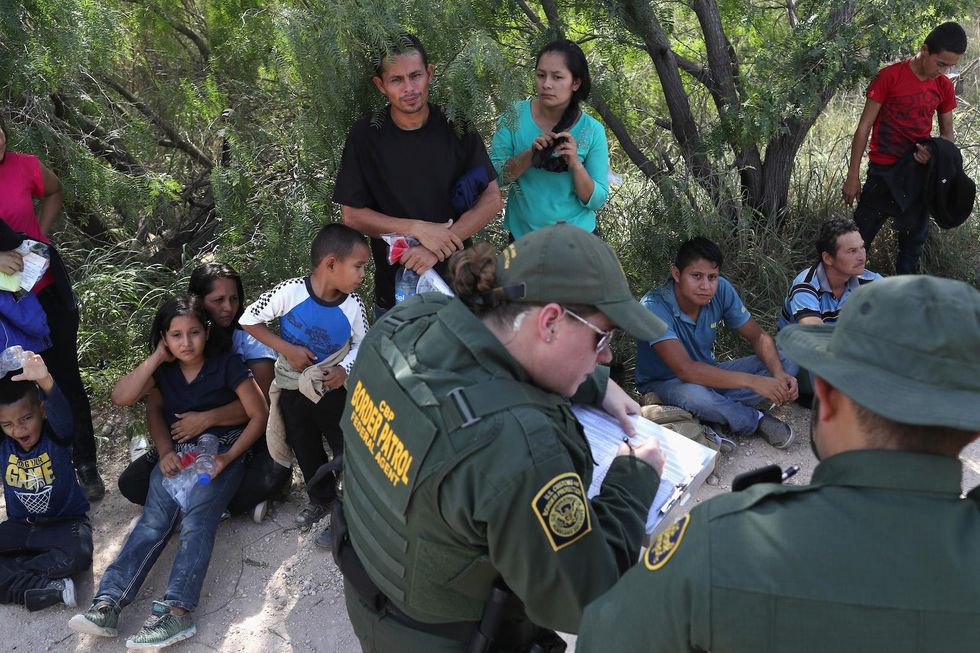
Some media outlets are reporting misleading statistics about the number of immigrant children the federal government has "lost track" of. Here is how the Office of Refugee Resettlement reaches their figures. (John Moore/Getty Images)

Last month, a USA Today article claimed that "The feds lost — yes, lost — 1,475 migrant children." On Tuesday, a McClatchy report elevated that number to "likely" nearly 6,000 kids.
While those numbers are drawn from real statistics, the portrayal that thousands of children have simply been carelessly lost is misleading, as even the McClatchy report acknowledges, albeit numerous paragraphs after its alarmist headline and lede paragraph.
When unaccompanied minor children show up at the U.S. border from Mexico, El Salvador, Honduras, Guatemala, or elsewhere, they are placed in the custody of the Office of Refugee Resettlement.
The ORR then has two options for those children: They're either cared for in a shelter, or they're released to a sponsor, who is often a relative that already lives in the U.S. In 2017, 93 percent of children were released to a sponsor.
Thirty days after the child is released to the sponsor, an ORR case manager reaches out to the child and attempts to verify his or her well-being, and will report any reason for concern for the child's health or safety.
This is where the numbers come from. Out of 7,635 children ORR reached out to during the fourth quarter of 2017, the office was unable to verify the locations for 1,475 of those children. This could be because the child or sponsor moved, wasn't able to answer the phone, or didn't want to be contacted for fear of drawing the attention of immigration authorities.
McClatchy takes it a step further. According to its report, about 42,500 kids were placed with sponsors in fiscal 2017. Health and Human Services estimates that 14 percent of those didn't return the wellness check calls, which leads to the conclusion that nearly 6,000 kids have been "lost."
The careful use and understanding of words becomes important in issues as serious and divisive as this. The use of the word "lost" or the term "lost track of" implies that negligence on the part of the government has resulted in thousands of children being carelessly left to survive on their own, with no assistance.
However, the children (even those who aren't reached by the ORR calls) are placed with vetted sponsors, often relatives who care for their well-being. Which is a positive outcome when remembering that these are children that showed up alone and helpless at the nation's U.S.-Mexico border.
Here's how Steven Wagner, acting assistant secretary of the Administration for Children and Families at HHS, explained it, according to McClatchy:
You can imagine that many of those would not choose to speak to a federal official calling them on the phone. But there’s no reason to believe that anything has happened to the kids. If you call a friend and they don’t answer the phone, you don’t assume that they’ve been kidnapped. So that characterization that the kids are missing is incorrect. And I just want to emphasize that they are not in our custody at the point at which that voluntary phone call is made.
USA Today eventually posted a "clarification" in its article, admitting that the column "mischaracterized" the status of the 1,475 immigrants and clarifying that HHS did not "lose" more than a thousand children it had in custody.
But, in today's fast-paced media environment, the correction will never go as viral as the initial story that sparks an outrage. The damage is already done, and when people get too angry to see clearly, we get further from being able to have the discussions that could lead to real improvements and solutions to a serious problem.